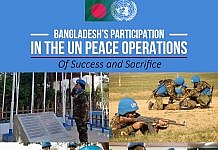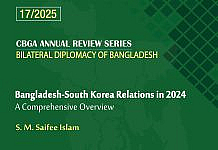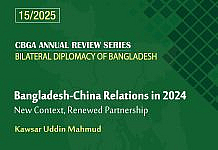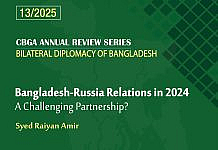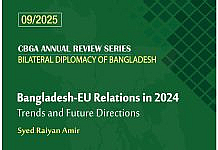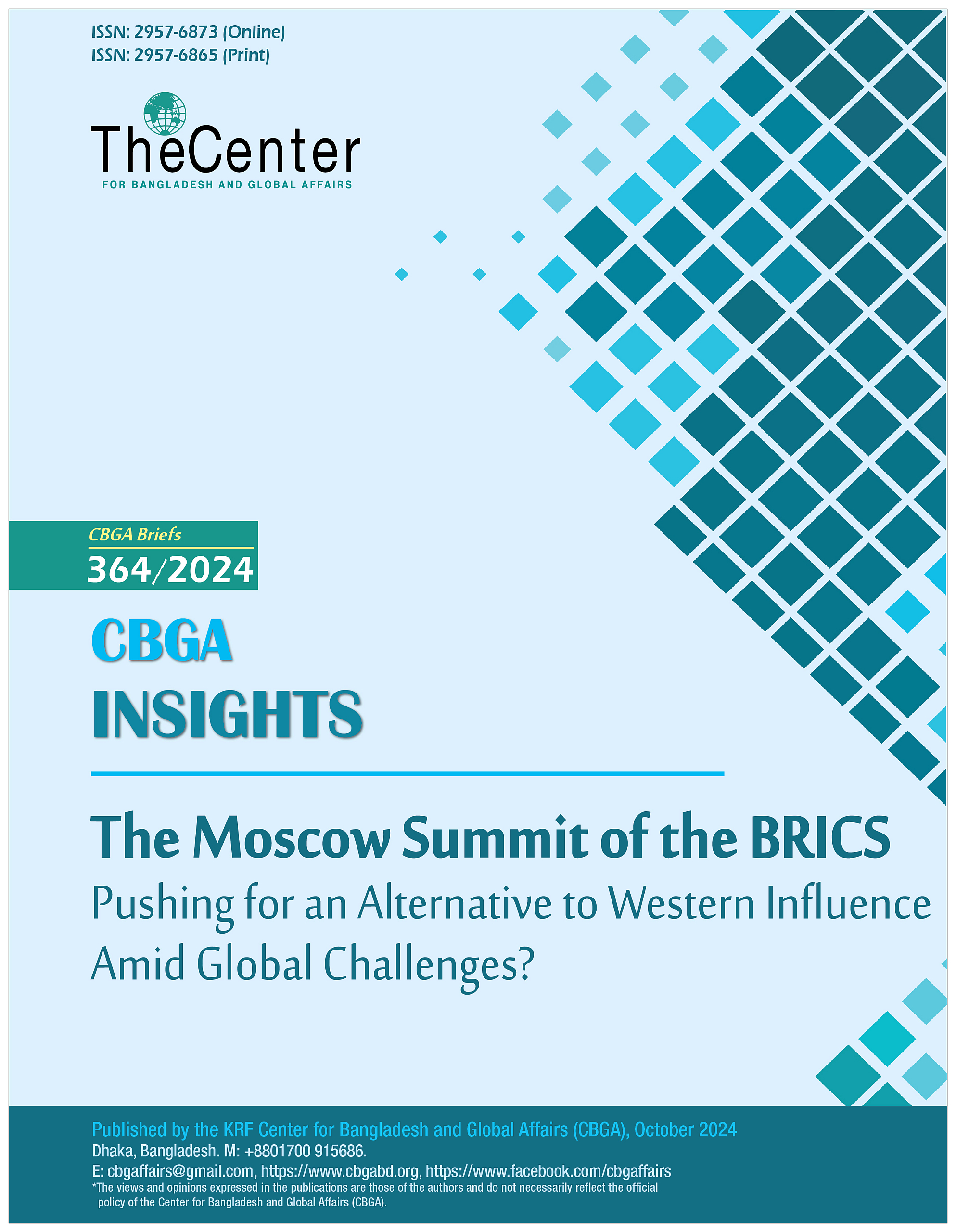
Russian President Vladimir Putin recently, from 22 to 24 October 2024, concluded a three-day summit of the BRICS group, held in Kazan, which brought together leaders and representatives from 36 countries. The summit served as a platform for Putin to emphasize the role of BRICS as a counterbalance to the influence of the West. Despite Western efforts to isolate Russia following its invasion of Ukraine, the summit underscored Russia’s determination to remain a key player on the global stage. With the participation of the United Nations Secretary-General António Guterres and other international figures, the event highlighted the complex dynamics of global diplomacy and Russia’s attempts to foster an alternative global order.
The Significance of the Kazan Summit
The Kazan summit, which marked the largest international gathering in Russia since the onset of the Ukraine conflict in 2022, provided Putin with an opportunity to present Russia as an essential partner for emerging economies. By hosting leaders from across the Global South, including China and India, Russia sought to showcase BRICS as a coalition with the potential to challenge Western dominance. The summit featured discussions on various global crises, including the war in Ukraine and conflicts in the Middle East, but it was clear that the event’s primary focus was on redefining the role of BRICS in the contemporary world order.
UN Secretary-General António Guterres made his first visit to Russia in over two years, calling for a peaceful resolution to the war in Ukraine in line with international law. However, the conflict was a contentious issue at the summit, as some participants took a critical stance against Western policies, while others, like India, advocated for reform rather than confrontation. Putin’s comments during a press conference reflected his openness to efforts to end the war, mentioning former U.S. President Donald Trump’s recent remarks about seeking peace in Ukraine. Yet, amidst the discussions, the summit largely maintained an atmosphere of solidarity among the BRICS nations, with a focus on challenging Western narratives.
A Carefully Crafted Image of Unity
Throughout the summit, Putin sought to project an image of unity and collaboration among the BRICS members. He hosted lavish events, including a gala dinner where he celebrated with the heads of state from China and India, demonstrating a sense of camaraderie. For Russia, the summit was an opportunity to challenge its isolation by showcasing a network of allies willing to engage with Moscow despite the ongoing war in Ukraine.
The gathering’s final communiqué criticized Western policies, particularly regarding the crisis in the Middle East. The criticism signaled BRICS’ desire to position itself as a voice for countries that feel marginalized by the current global order. However, the contrast between the upbeat atmosphere at the summit and the harsh realities of ongoing global conflicts was stark. Even as leaders tapped their feet to traditional Russian music and exchanged pleasantries, the war in Ukraine continued to escalate, highlighting the dichotomy between the summit’s optimistic narrative and the challenges Russia faces on the ground.
Russia’s Isolation Amid a Changing Global Landscape
The Kazan summit underscored the geopolitical isolation that Russia faces in the aftermath of its invasion of Ukraine. While Putin sought to use the event to convey a sense of normalcy, the shadow of Western sanctions and diplomatic restrictions loomed large. Travel to Russia remains constrained due to the International Criminal Court’s arrest warrant against Putin, making it difficult for him to engage with leaders from Western nations.
The summit’s participants had to navigate these challenges as well. Organizers advised foreign delegates to bring U.S. dollars or euros, as non-Russian bank cards would not function within Russia—a paradox given Putin’s vocal criticism of the U.S. dollar’s dominance in global finance. Despite these logistical hurdles, the summit attracted representatives from 35 countries and six international organizations, signaling a continued willingness among many nations to engage with Russia outside of the Western sphere of influence.
North Korean Troops and the Ukraine War’s Escalation
As the summit progressed, reports emerged that North Korean soldiers were present in Russia, a development that raised concerns among Western observers. This move hinted at Russia’s growing reliance on unconventional alliances to sustain its war effort in Ukraine. Putin appeared to indirectly confirm these reports, highlighting the shifting dynamics in Russia’s international relationships. While China has provided economic support to Russia, it has also called for restraint in the Ukraine conflict, underscoring the complexities of Moscow’s alliances.
China’s concerns extend to the implications of deeper ties between Russia and North Korea. Beijing fears that such relationships could destabilize the Korean Peninsula, adding another layer of tension to an already volatile region. This unease among BRICS members, including China, contrasted sharply with the triumphant mood at the Kazan summit, where the focus remained on presenting a united front against Western influence.
Internal Divisions Within the BRICS Bloc
While BRICS presents a platform for emerging economies to come together, internal divisions within the bloc remain a significant challenge. Countries like China and Russia are more inclined to confront the existing U.S.-led global order, while others, such as India and Brazil, favor a more reformist approach. Indian Prime Minister Narendra Modi’s remarks at the summit emphasized the need for BRICS to be seen as an organization that seeks to reform global institutions rather than replace them. This difference in approach highlights the challenges in forging a unified stance within the group.
The varied interests of BRICS members limit the group’s potential to become a true geopolitical heavyweight. Experts, such as Manoj Kewalramani from the Takshashila Institution in India, argue that BRICS remains more of a pragmatic alliance than a cohesive geopolitical power center. The member states, along with new partner countries, are motivated by practical benefits rather than a shared ideological commitment, which restricts the bloc’s ability to present a unified challenge to Western dominance.
Proposals for Developing Economies and Future Prospects
Despite these internal differences, the Kazan summit offered a platform for discussing initiatives that could benefit developing economies. Putin proposed the creation of a BRICS development bank and exchanges for grain and commodities, aimed at providing financial support and stability to member states. These proposals highlight BRICS’ ambition to address the needs of countries that feel underserved by existing global institutions.
However, experts remain skeptical about the group’s ability to transform into a significant institution in the near future. Tatiana Stanovaya, founder of the political analysis firm R.Politik, notes that while BRICS could evolve into a more influential entity over the next decade, time may not be on Putin’s side. Russia’s current reliance on economic support from China and the mixed views within BRICS on the Ukraine conflict limit its ability to use the bloc as a tool for advancing its interests in the ongoing crisis.
Russia’s War Challenges and Economic Strain
Beyond the political dynamics of the Kazan summit, Russia continues to face significant challenges in sustaining its war effort in Ukraine. Shortly after the conclusion of the summit, the Russian central bank raised interest rates to 21%, highlighting the strain on the country’s economy. High interest rates reflect the difficulties in financing the prolonged war, as sanctions and reduced access to global markets have taken a toll on Russia’s economic stability.
The need for additional manpower, demonstrated by the presence of North Korean soldiers, further underscores the difficulties Russia faces in sustaining a war of attrition. These developments have put Putin in a delicate diplomatic position, as his reliance on unconventional allies like North Korea risks creating tensions with China, his primary economic partner. As Russia’s economic challenges deepen, the limitations of the BRICS alliance in providing substantial support become increasingly apparent.
The Road Ahead for BRICS and Russia
As the Kazan summit concluded, the future of BRICS and Russia’s role within it remained uncertain. While the summit provided Putin with a momentary respite from international isolation, it also highlighted the complexities of managing alliances with countries that have diverse interests and priorities. The group’s ambitions to create a more balanced global order remain hindered by internal divisions and the differing geopolitical strategies of its members.
Nevertheless, the summit demonstrated that many countries outside the Western sphere are willing to engage with Russia, even as it faces sanctions and diplomatic restrictions. The presence of leaders from Africa, the Middle East, and Asia at the BRICS gathering in Kazan showed that the Global South remains a key area where Russia can seek partnerships and influence. Yet, the ability of BRICS to translate these relationships into meaningful geopolitical power remains a question for the future.
Conclusion
The BRICS summit in Kazan showcased Russia’s attempts to create an alternative narrative to the West’s dominance, offering a vision of a more multipolar world order. However, the realities of the ongoing war in Ukraine, economic challenges, and the complexities of managing diverse alliances within BRICS limit the immediate impact of this vision. While Putin sought to use the summit as a platform to demonstrate Russia’s global relevance, the path to achieving a truly influential role for BRICS remains challenging.
In the long term, the success of BRICS will depend on its ability to balance the differing aspirations of its members and deliver tangible benefits to developing economies. As global power dynamics continue to shift, the group may yet evolve into a more significant player on the world stage. But for now, the Kazan summit remains a reflection of Russia’s efforts to navigate its geopolitical isolation and reshape its place in a rapidly changing global order.
– Syed Raiyan Amir is a Senior Research Associate at the KRF Center for Bangladesh and Global Affairs (CBGA).


